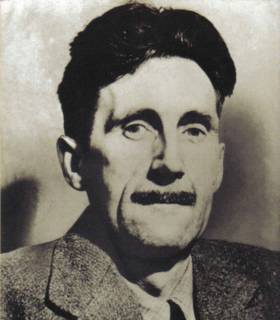
"the simple undifferentiated desire: that was the force that would tear the Party to pieces."
James Moody, I'm In the Mood for Love.
As jazz began fading from mass popularity in the U.S., and especially at its commercial nadir in the late '60s and early '70s, many musicians could only find regular work and recording contracts across the Atlantic. American jazz geniuses like Dexter Gordon and Cecil Taylor, just to name two, often were kept fiscally sound thanks to the dedication of European fans and labels.
James Moody was one of the first of the bebop players to make a go of it in Europe. Moody, born in 1925 in Savannah, Georgia, first got noticed in Dizzy Gillespie's big band in 1946. In late 1948, he went to Paris to live with his uncle--Moody's mother wanted James, who was hitting both the bottle and the benzedrine, to have a place to clean up. Moody figured he was going to Europe for a few weeks--he stayed until 1951.
While playing at the Club St. Germain in Paris, Moody jammed with a Swede, Anders Burman, a drummer, enthusiast and record label owner, who afterward asked Moody to come to Sweden to record. In Stockholm, Moody and a group of Swedish players put down a number of great tracks, but the most indelible performance, Moody's take on "In the Mood for Love", happened as essentially a happy accident, spurred by Moody's whim to play the alto saxophone.
"Lars Gullen had this beat-up alto sitting by him. I said, "You mind if I look at that?" He said, "No. Go ahead." So I picked up the alto and Gosta Theselius said, "Well, let me go in the restroom." So he goes to the toilet and he jots down the harmonies to "I'm in the Mood for Love" while he's there. And he comes out and we do it in one take.
And the reason why it starts that way [he sings the "There I go, there I go" beginning of the solo], I'm hesitating because I didn't play alto then, I played tenor. So when it started, I'm just trying to find the notes. And people said, "You must have been inspired." My inspiration was coming from trying to find the right notes! That's what it was."
Recorded in Stockholm on October 12, 1949 for Metronome. With Moody and Arne Domenerus on alto sax, Leppe Sundwall (t), Gosta Theselius (tenor sax), Per-Arne Croona (baritone sax), Thore Swanerud (p), Yngve Akerberg (b) and Burman (d).
The classic Moody Stockholm sessions can be found here. You can buy other CDs from the man himself. And Moody at 80 years old is still on the stage--scroll down for his 2005 tour dates. His next show is in Savannah, on March 19, and then he'll be in New York at the Blue Note from March 22-27.
In June 1949, George Orwell's 1984 was published. Seven months later, Orwell would be dead of pulmonary tuberculosis. In my youth, the book had a great ominousness for me (I was an overly imaginative child), in part because I was living, according to the calendar, in Orwell's predicted future. (Does anyone recall the Walter Cronkite news special on 1984, in which Cronkite investigated things like personal computers to see how close we were to becoming Oceania? O the heady days of network news.)
I wonder if Orwell would have appreciated the grotesque, ridiculous irony of Big Brother becoming the name of a television program in which people volunteer to be monitored by cameras and gleefully undergo sensory deprivation and other forms of mild torture. I'm just glad he never had to consider it.
No comments:
Post a Comment